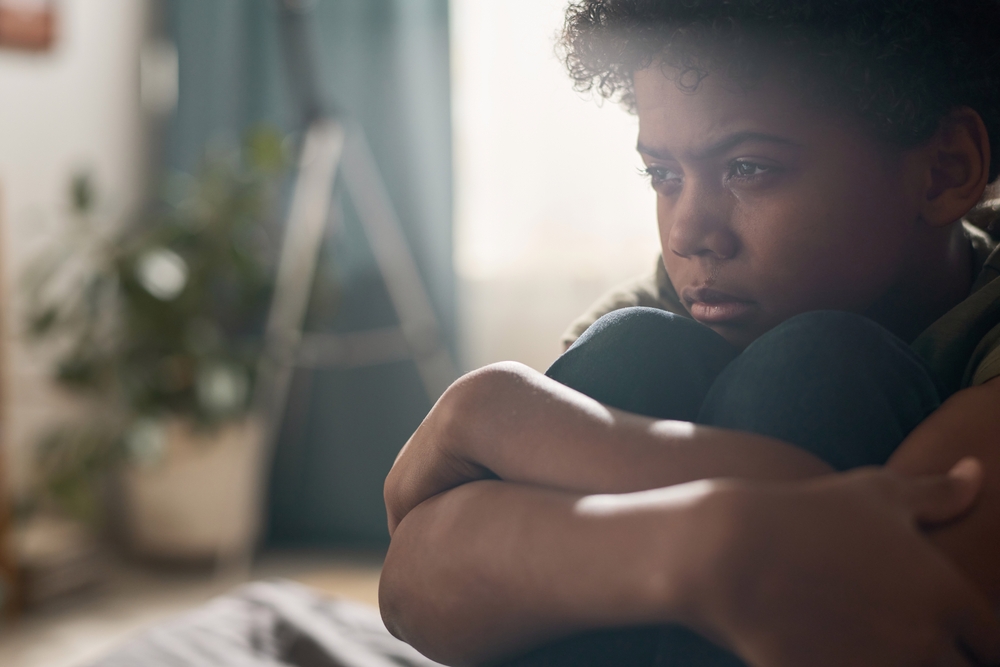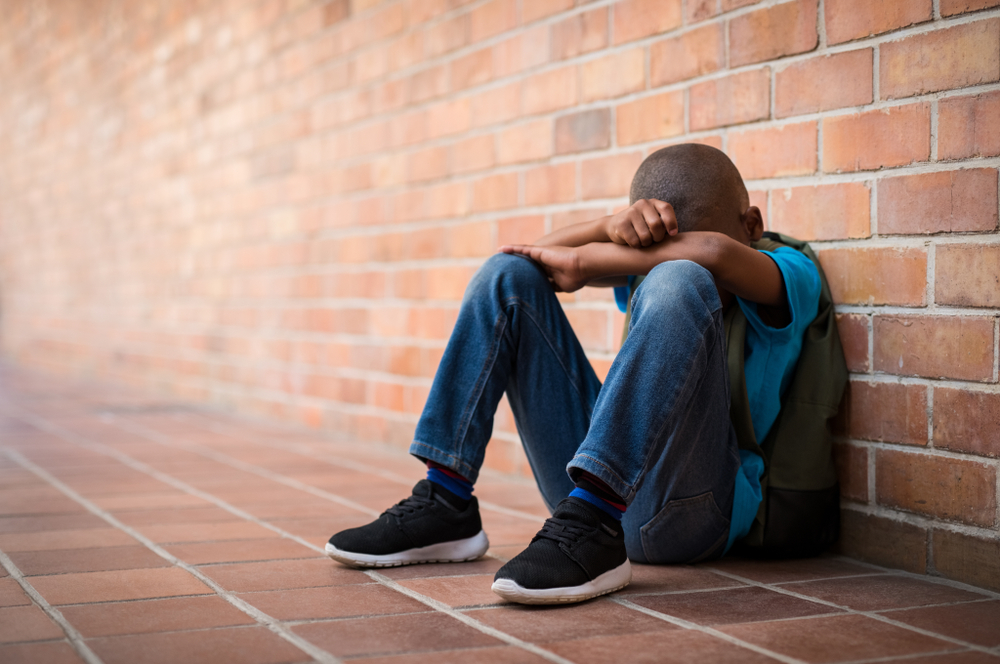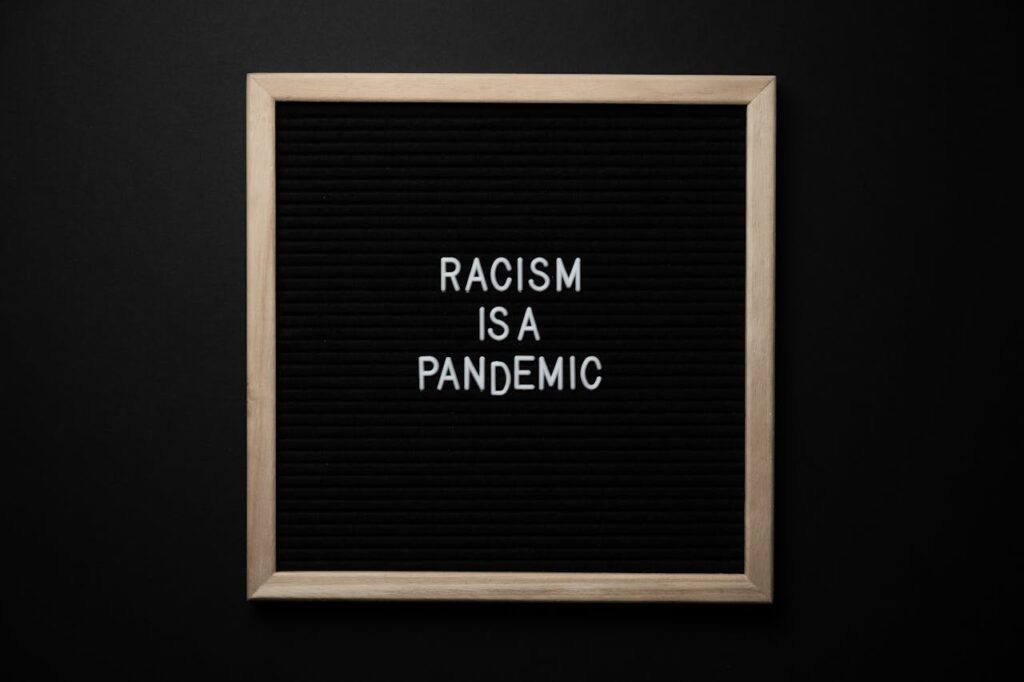Florida Teacher Sparks Outrage After Allegedly Singing Racist Birthday Song

A Florida teacher has come under intense scrutiny after a shocking incident in which she allegedly sang an altered version of the birthday song to a young Black student, including the word “monkey.” The mother of the boy, Desarae Prather, says her son was humiliated in front of classmates and that the incident was not an innocent mistake but a racially motivated act.
The story has sparked widespread outrage on social media, drawing attention once again to the deep-rooted problem of racial insensitivity and discrimination within educational institutions. Parents, activists, and community leaders are demanding accountability and stronger policies to prevent such behavior from occurring in schools.
As details continue to emerge, this incident raises uncomfortable questions about race, respect, and the role of educators in shaping young minds. For many, it is a reminder that racism, even in its most casual or disguised forms, continues to cause harm.

The Incident That Shocked a Community
According to reports, the controversy began at a Florida elementary school when a white teacher allegedly sang an altered version of the traditional “Happy Birthday” song to a Black student. Instead of the normal lyrics, she reportedly added the word “monkey” to the song. Witnesses stated that the class laughed, leaving the boy feeling humiliated and confused.
The student’s mother, Desarae Prather, learned of the incident when her son came home upset. When she questioned him, he revealed that his teacher had made fun of him during the celebration. Prather immediately contacted the school, demanding an explanation and an apology. She shared her frustration publicly, stating that what was meant to be a joyful moment for her child turned into an experience of public embarrassment.
As news spread, community members began calling for the teacher to be placed on administrative leave while an investigation took place. Many expressed disbelief that such behavior could still occur in a modern educational setting, especially from someone entrusted with teaching children about respect and inclusion.
The school district confirmed that an investigation was underway, though they declined to release details about disciplinary actions. Parents in the community say this is not the first time they have heard of racially insensitive remarks by educators, sparking broader discussions about systemic problems.
Who Is Desarae Prather and Why Her Story Matters
Desarae Prather, the mother at the center of this controversy, has been outspoken about her determination to seek justice for her son. Speaking to several media outlets, she said her son has become withdrawn since the incident and feels isolated at school. Her message is clear: racism, whether intentional or disguised as a joke, should have no place in the classroom.
Prather is not just fighting for her own child. She has become a voice for parents across Florida and beyond who say schools often fail to protect students of color from racially charged behavior. Her activism has inspired other parents to come forward with similar stories of discrimination that have long gone unaddressed.
NEW: Florida mom fumes and accuses her son's school of being 'racist' after his teacher sang him the "funny birthday song."
— Collin Rugg (@CollinRugg) October 2, 2025
The elementary school has since launched an investigation after Desarae Prather said her son's teacher was being "racist" to him.
The lyrics in question… pic.twitter.com/5eaRqHS5iv
In interviews, Prather described the pain of watching her child’s self-esteem diminish because of an adult’s words. She expressed disbelief that a teacher could show such poor judgment and insensitivity, especially toward a young student. Her story highlights the emotional and psychological impact that racism in schools can have on children.
This situation has resonated deeply with many families who see echoes of their own experiences in Prather’s story. It has reignited the conversation about how to make educational spaces safer and more inclusive for all students, regardless of race.
Community Reactions and the School’s Response
The incident quickly spread on social media platforms, prompting widespread outrage and calls for accountability. According to CBS News Miami, many users demanded the immediate firing of the teacher, while others called for diversity and sensitivity training for all staff members. Parents and civil rights advocates gathered outside the school, holding signs and chanting for justice for the young boy.
The school district released a brief statement acknowledging the allegations and promising a full investigation. Officials stated that they take all accusations of racial misconduct seriously and that disciplinary measures would be based on the investigation’s findings. However, critics argued that such statements have become routine and often fail to result in meaningful action.
Community members have also taken it upon themselves to support the affected family. Local organizations reached out to Prather, offering legal aid and counseling services for her son. Several community leaders have demanded the introduction of stricter policies that address racially insensitive behavior and ensure swift consequences.
Meanwhile, many educators across the country have expressed disappointment, emphasizing that teaching should foster respect, empathy, and understanding. The fact that such behavior could take place in a classroom has led to renewed calls for comprehensive anti-bias training in schools.
The Bigger Issue: Racism in Schools
While this particular incident has drawn widespread attention, it is far from isolated. Studies across the United States have consistently shown that children of color face discrimination and bias within the school system, both overtly and subtly. Whether through disproportionate disciplinary actions, microaggressions, or insensitive remarks, these behaviors contribute to a culture where minority students often feel unsafe.
According to a 2023 report by the U.S. Department of Education, Black students are suspended at rates nearly three times higher than their white peers, despite similar behavior patterns. Incidents like the one involving Desarae Prather’s son serve as painful reminders of these disparities. They reveal the urgent need for schools to create systems that recognize and address racial bias before it causes harm.
Experts say that part of the problem lies in a lack of training and awareness among educators. Many teachers enter the classroom without proper preparation to handle cultural differences, resulting in unintentional yet harmful actions. Implementing mandatory training on diversity, equity, and inclusion can help bridge this gap.
Parents and advocates argue that schools must go beyond apologies and public relations statements. Real progress requires concrete policies that hold staff accountable and create environments where all students feel respected and valued.
The Emotional Impact on Children
For children, experiences of racism can have long-lasting psychological consequences. Mental health experts emphasize that public humiliation, especially from authority figures like teachers, can deeply affect a child’s confidence, trust, and emotional development. When such experiences are ignored or dismissed, they can lead to feelings of alienation and resentment.
In the case of Prather’s son, reports indicate that he no longer feels comfortable in the classroom. His mother has expressed concern that he is becoming withdrawn and anxious about returning to school. Such reactions are not uncommon among victims of racial bullying or discrimination, especially when they feel unsupported by the institutions meant to protect them.
Educators have a duty to understand the profound influence they wield over young minds. When their actions reinforce stereotypes or cause harm, they risk damaging a child’s perception of themselves and their place in society. Schools must prioritize creating safe emotional spaces where every student can thrive.
Addressing the emotional aftermath of such incidents requires more than apologies. It involves counseling, open dialogue, and restorative practices that help rebuild trust. Only through active acknowledgment and reform can schools begin to heal the wounds caused by racial insensitivity.

A Call for Accountability and Change
The outrage following this incident underscores a broader truth: racism, in any form, cannot be tolerated, especially within institutions of learning. Parents trust teachers to nurture and protect their children, not to belittle them. Every act of racism, no matter how seemingly small, contributes to a culture of division and pain.
School districts across the nation are being urged to reassess their policies regarding discrimination. This includes introducing mandatory training for teachers, clear reporting systems for parents and students, and transparent disciplinary processes when racism is involved. These measures are not merely bureaucratic, they are essential steps toward justice and equality.
Communities must also play a role by engaging in conversations about race, empathy, and respect. Raising awareness and promoting education about diversity from an early age can help shape a more inclusive generation. Everyone has a role to play in dismantling systemic racism, from school administrators to parents and students themselves.
For Desarae Prather and her son, the road to healing may be long, but their courage has sparked a crucial conversation. Their story serves as a wake-up call to educators and institutions everywhere: racism, whether overt or subtle, must be confronted head-on.

Lessons Beyond the Classroom
The Florida classroom incident is more than just a local controversy, it reflects a larger issue that continues to haunt societies worldwide. It reveals how easily a moment meant to celebrate can turn into a source of trauma when respect and understanding are missing. It shows how words, even when masked as jokes, can carry deep wounds.
The story of Desarae Prather’s son reminds us that combating racism begins with empathy and awareness. Teachers, parents, and students must all participate in creating inclusive spaces where differences are celebrated rather than mocked. Change will not come overnight, but every conversation and every act of accountability brings us closer to that goal.
Ultimately, this is a call to reflection. The question is not only what should happen to the teacher involved, but what kind of culture we want to build within our schools. Education should empower, uplift, and unite. Anything less fails the very purpose of learning.
Featured Image Credit: Courtesy of Media_Photos | Shutterstock
Loading...

